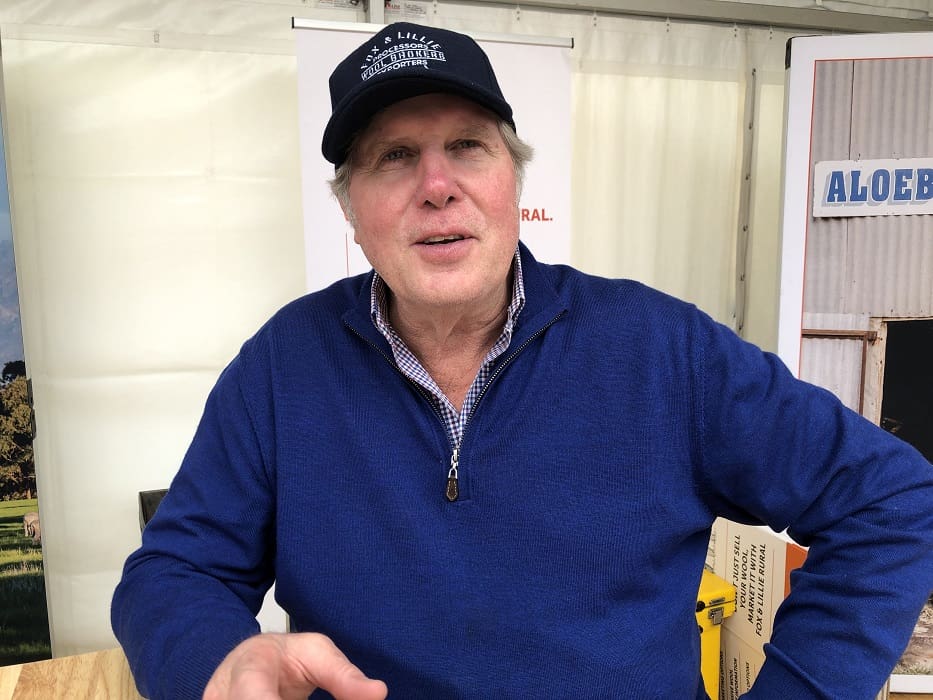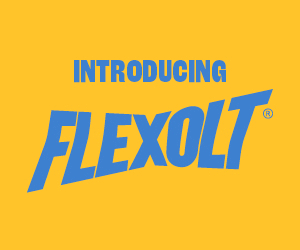
Fox & Lillie managing director Jonathan Lillie.
AUSTRALIA’S wool industry needed to prove to consumers it was ethical and sustainable to compete with non-mulesed competitors Argentina and South Africa, and to counter antagonists and man-made fibres.
That was the message of Fox & Lillie managing director Jonathan Lillie at a Hamilton Sheepvention Rural Expo breakfast this week.
Mr Lillie said the 100 percent family-owned company is celebrating 75 years since it was incorporated in Australia.
With the help of a video presentation of Chris Gaffney, chief executive of Johnstons of Elgin – Mr Lillie outlined how he discovered the Lillie family’s connections to the trade started in 1843 with his great-great-great grandfather and clock merchant Alexander Lillie, a fabric client of the specialist Scottish fabric weaver. Previously, the first connection was thought to be Jonathan’s grandfather Cyril Lillie’s apprenticeship in a Bradford woolen mill in 1918.
Mr Lillie said with the family’s connections in wool and fabric trading back to the early 1800s and now involving four generations “one might say our family is embedded in wool.”
Mr Gaffney pointed out that Johnstons of Elgin’s core requirements were for wool to be ethical, sustainable and traceable, exclusively choosing fibre third-party accredited under the Responsible Wool Standard.
Mr Lillie said all of the brands Johnstons of Elgins supply demand wool comes from a sustainable and ethical supply chain. While China maintains dominance in wool processing, Europe and other countries “call the shots” in fashion and innovation in wool, he said.
Mr Lillie said verification standards allow industries such as wool to systemically identify and catalogue production methods to prove to the potential buyer that they are, the case of RWS, sustainable ethical and traceable.
 “This is not a bad thing; it is a good thing.
“This is not a bad thing; it is a good thing.
“After all, it is reasonable to consider that someone wishing to buy wool, an animal fibre, is able to confirm that the wool in a garment comes from an independently accredited production system,” he said.
”For everyone in the supply system, these accreditation systems provide a strong barrier of defense and protection against antagonists whose business it might be to try and discredit the wool supply chain or production methods
“In a nutshell, for Merino wool, independent third party verification allows the industry to collectively get itself on the front foot with wool antagonists,” he said.
Mr Lillie said while there has been a reasonable transition of Australian wool differentiating their wool through verification standards – about 18 percent – he noted that most other Australian wool growers easily conform to most of the various components of the RWS verification standards.
“Except for one – mulesing.”
“There are many who believe it is unethical to not mules – the unique Lucilia cuprina blowfly can be a compelling reason why this may be so,” he said.
“Vast paddocks and huge distances in pastoral regions making animal husbandry difficult enough, as does increased chemical usage to control flies.
“These are all reasonable arguments to advance, but we must consider others, not on the raw wool production coalface , including many top brands and manufacturers, that may consider it reasonable to assume that a young person adept in socal media and interested in buying a wool product, might ask the question –‘why we continue to mules sheep in Australia?’ Mr Lillie said.
“In a world where many people are more interested in animal welfare than the welfare of humans, there are still many reasonable human beings both young and old who do not wish to give up eating meat or wearing animal fibre products – they just want to be assured that an animal whose meat we are eating or whose fibre they are wearing, has been produced in a sustainable and ethical production system.
“This is the new way of the world.”
Mr Lillie acknowledged that the non-mulesed wool production pathway is “not an easy road to follow” and required time and effort in breeding, commitment and ongoing flock management.
“However, it is important we have all Australian wool available to every garment manufacture interested in using wool, remembering of course, our main competition – Argentina, South Africa – all have non-mulesed sheep.
“Unlike the days before synthetics were invented, when the world relied on wool for clothing, the modern world can easily survive without wool,” he said.
“However, wool’s natural fibre, annual renewability and biodegradability credentials have never been more relevant in a world struggling to give up synthetics and plastics which geographically pollute our terrestrial and marine ecosystems.
“As the world’s number one apparel wool producer, Australia is in the box seat to offer the world a magnificent alternative to fossil fuel-based fibre or natural fibres that use vast quantities of fuel and chemicals to produce them,” Mr Lillie said.
“Against a big push by oil-based synthetics to maintain and grow market share, we must convince the people of the world that natural wool is a viable and responsible alternative to man-made fibres.
“Our family-owned company, belief in wool remains strong as we continue to invest in wool and expand our regional business model,” he said.
He said Fox and Lillie recently opened stores in Corowa and is constructing a new store in Tamworth, both with AWTA accredited testing facilities.

Thank you for this very interesting article.
Interesting, but the article talks around mulesing and does not describe or commit to a viable and effective path through it – to its elimination. So far, so good but not far enough.
By the way, apropos the comment:
“Mr Gaffney pointed out that Johnstons of Elgin’s core requirements were for wool to be ethical, sustainable and traceable, exclusively choosing fibre third-party accredited under the Responsible Wool Standard”.
Yes, years ago I was at a function in the UK where there were a lot of well-dressed people when this chap comes up to me and says “congratulations, you are wearing one of our treed sports jackets!. I could pick it, he said, from across the room.”
Then he announced himself as a director of Johnstons of Elgin.
But he does articulate why it’s important that mulesing should be phased out. If it isn’t, the industry is forever in defensive mode and will continue to lose market share. If it is phased out, then wool can at least begin to compete on its merits. As growers, we must respect our customers and work with them.